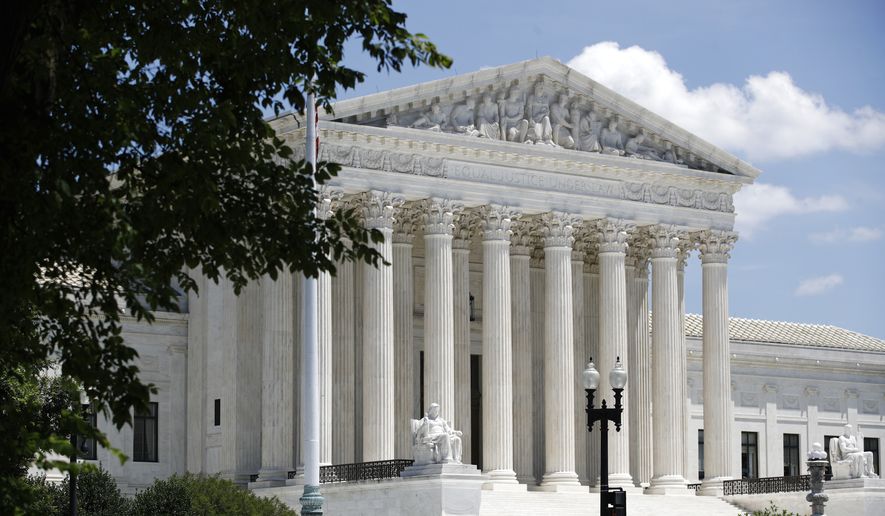Three states have petitioned the Supreme Court to step in and immediately stop the federal government from imposing a plan to reduce greenhouse gas emissions from state to state, as their appeal is pending in lower courts. They say if the justices don’t intervene now, the states would suffer economic harm and potential damage to the power grid.
Ohio, Indiana and West Virginia told the high court that the Biden administration’s Environmental Protection Agency has usurped the Clean Air Act, misunderstanding the federal government’s role. The administration has issued aggressive plans that impose requirements on the states, setting up a federalism clash.
The states say, under the law, states are required to develop plans to reduce emissions and improve air quality from one state to another. So long as a state shows it has reduced emissions, the federal government is supposed to approve the plan, the states argue. Instead, they say the government has rejected plans from nearly two dozen states and moved to impose its own agenda.
“The EPA’s rulemaking ignored obvious problems with its attempt to twist the Clean Air Act into a system of top-down regulation instead of the system of cooperative federalism that Congress intended,” the states said in their petition to the high court.
Their request was presented to Chief Justice John G . Roberts Jr., who oversees appeals from the D.C. Circuit Court of Appeals.
The appeals court did not agree to halt the federal plan. However, the states noted in their filing that six other circuit courts have halted the government’s plan in other cases contesting the same issue.
“The plan inflicts irreparable, economic injuries on the states and others every day it remains in effect. Worse still, the plan is likely to cause electric-grid emergencies, as power suppliers strain to adjust to the federal plan’s terms. To prevent these harms, the court should step in now,” the states said.
At issue is the federal “Good Neighbor Plan” aimed at improving air quality across states’ borders.
Pipeline companies have joined the legal battle, telling the high court that the federal plan imposes “impossible” standards on their industry.
“The rule requires that thousands of pipeline engines achieve certain emission-rates limits by May 1, 2026. This date is flat-out impossible for all subject pipeline engines to achieve,” the companies wrote in a separate court filing.
The high court asked the EPA to respond by Oct. 30 as it reviews the petitions.
• Alex Swoyer can be reached at aswoyer@washingtontimes.com.




Please read our comment policy before commenting.